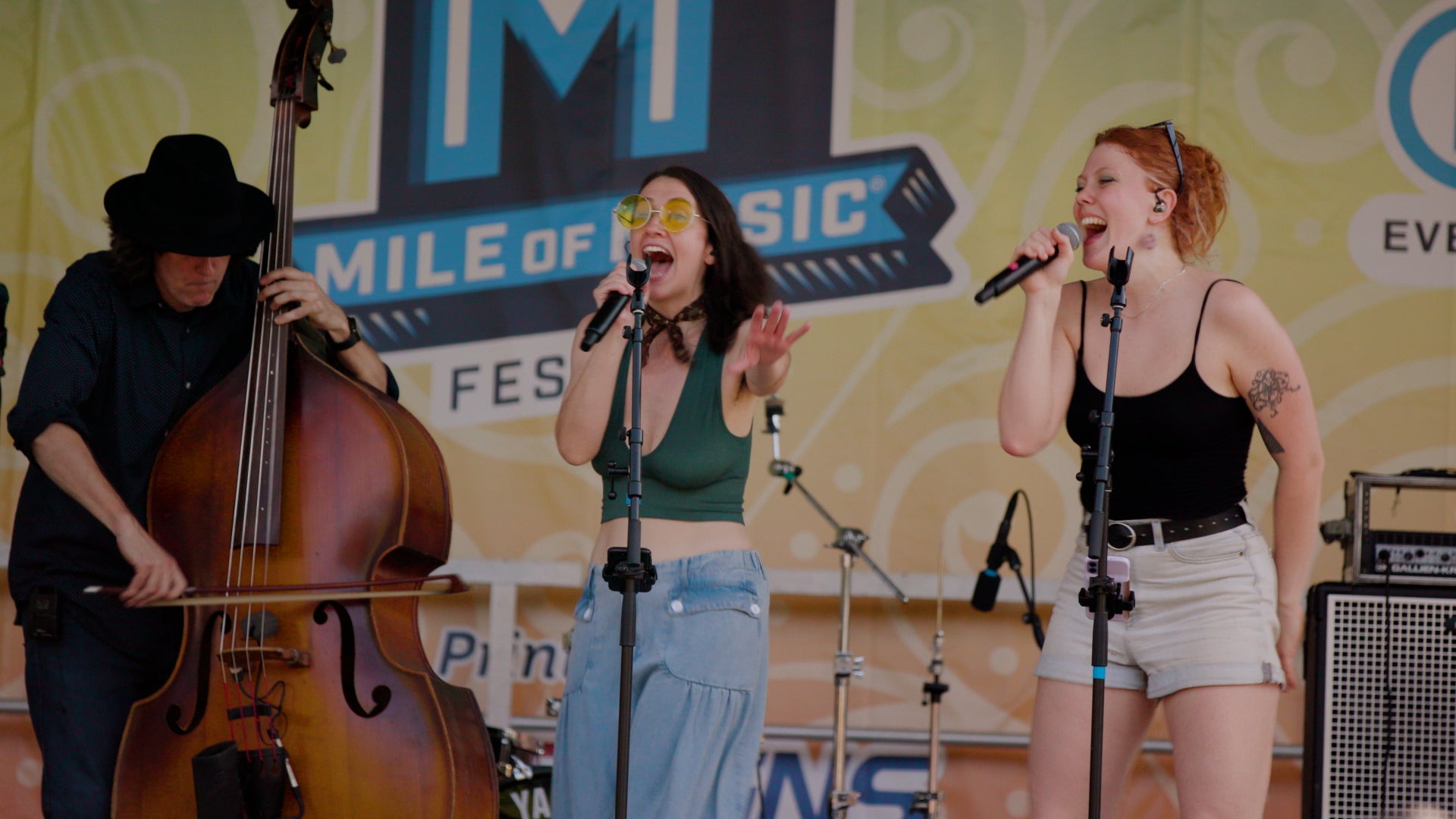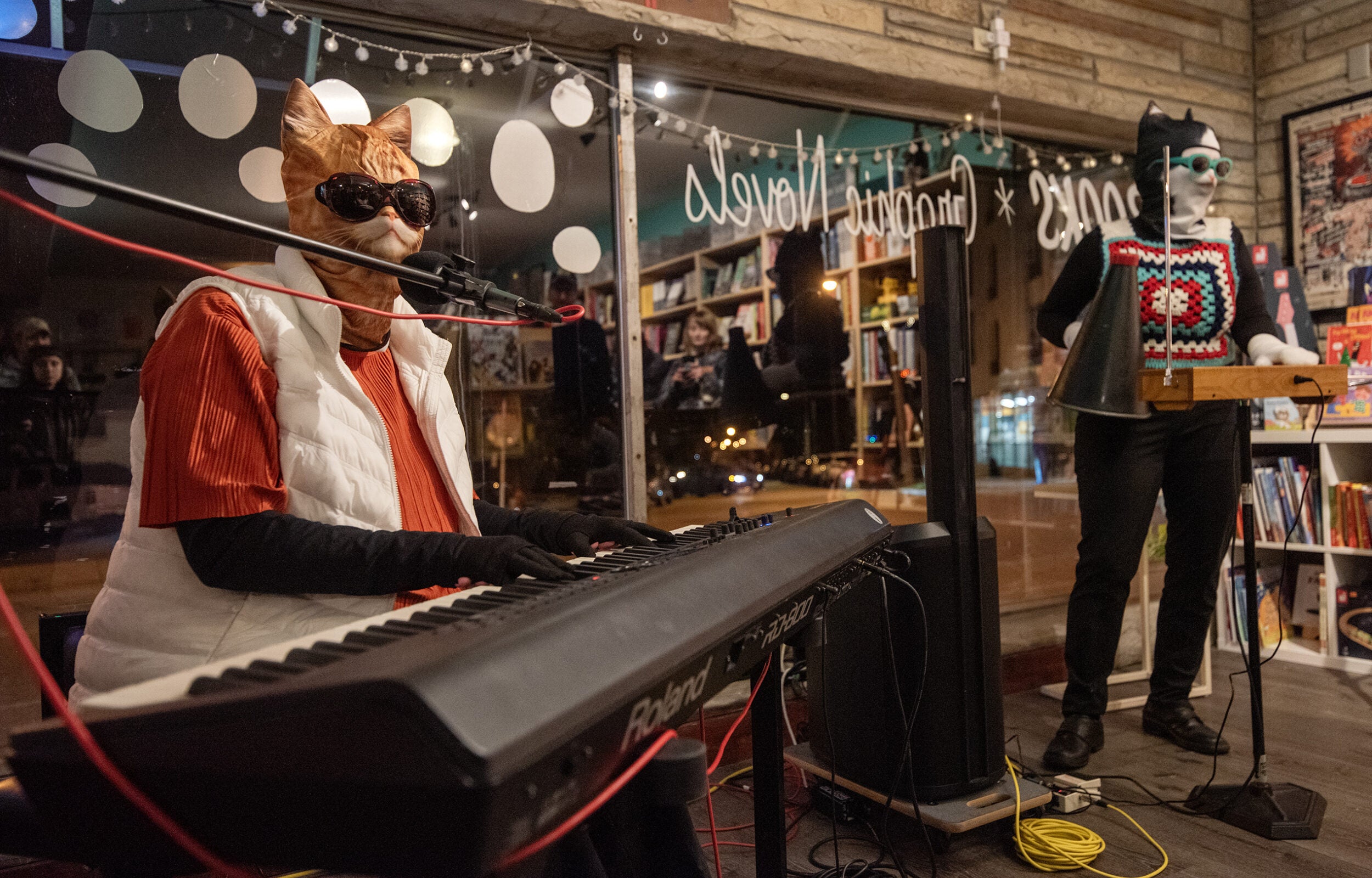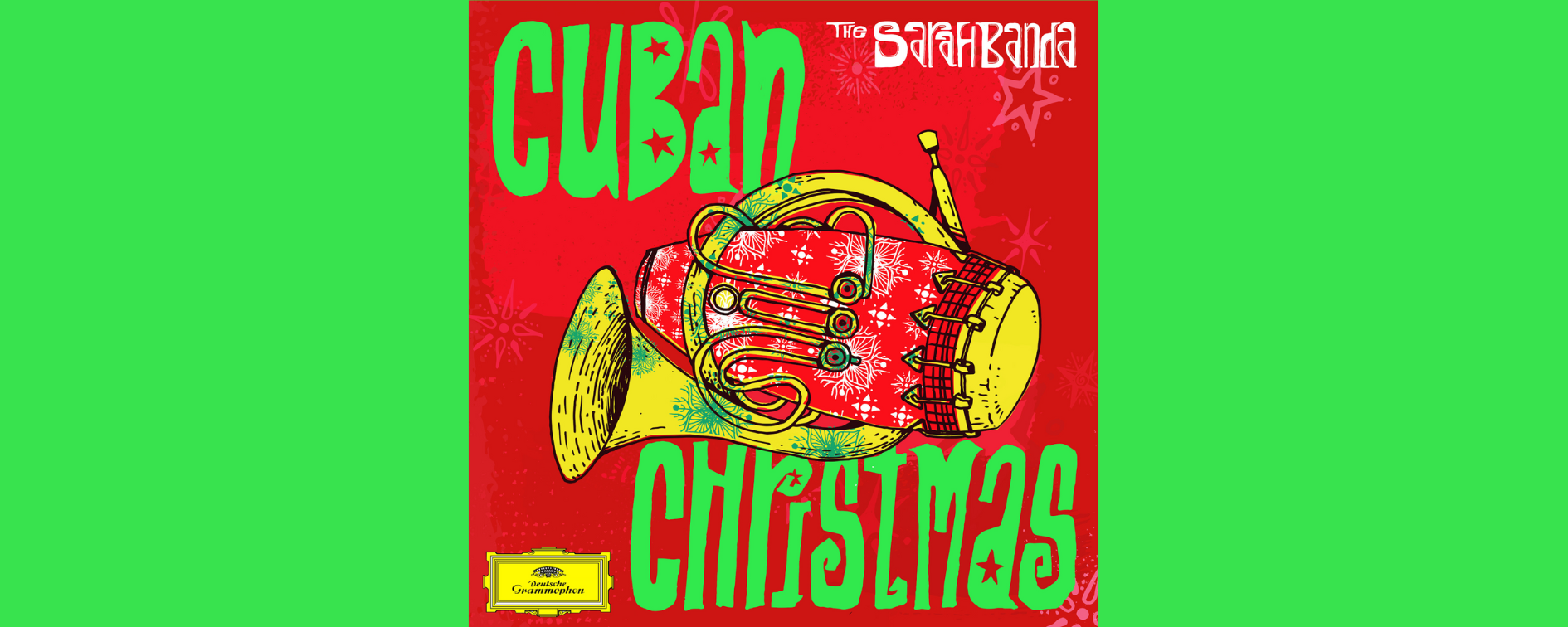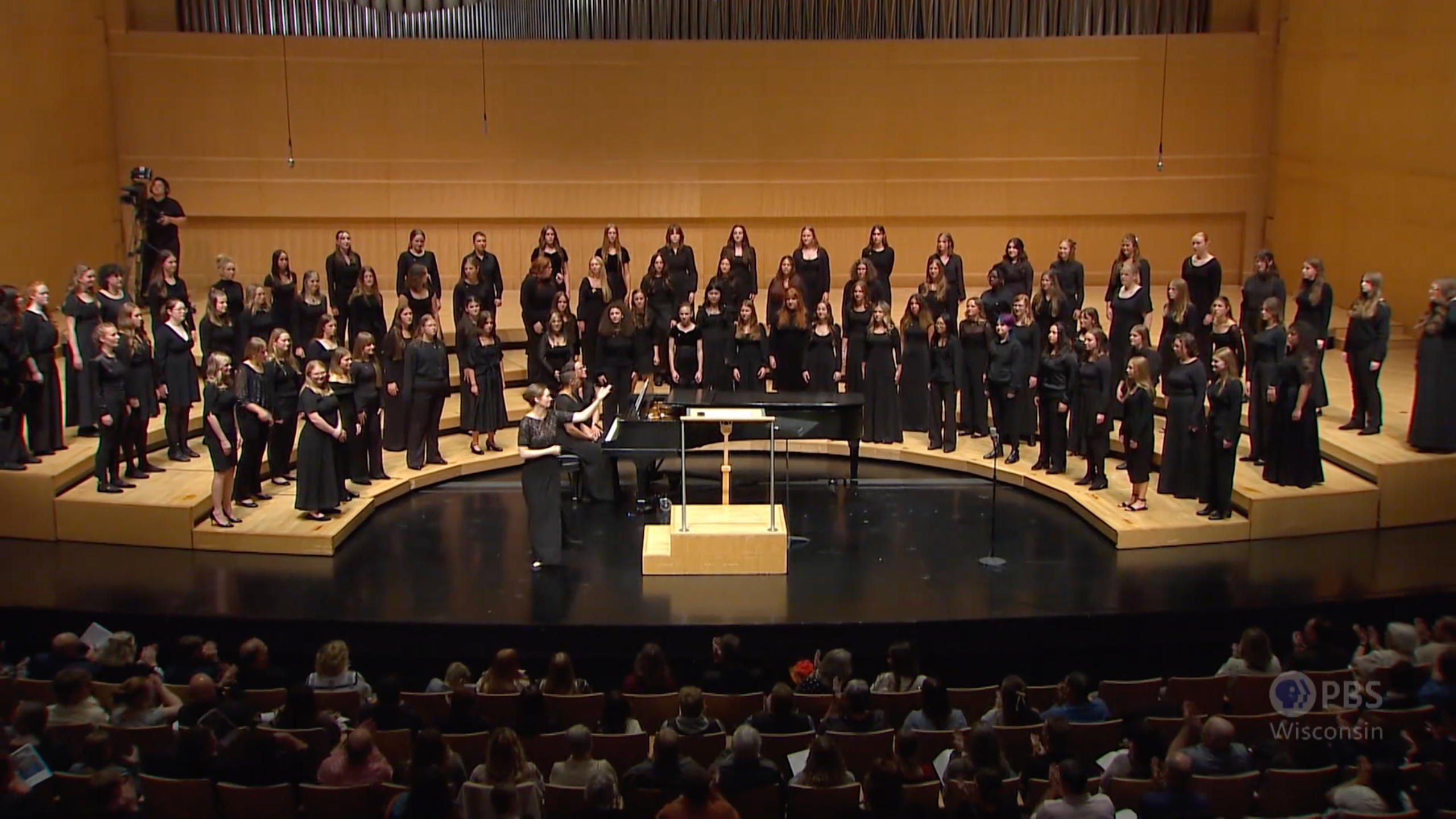Over the course of four days each summer, a 1-mile strip in Appleton fills with some 200 musicians who play more than 650 sets of original music.
The Mile of Music festival has been going since 2013. The free summer event starts July 31. Event organizers say these are musicians you don’t know, but you should.
And there’s a documentary that just came out, showing viewers what they can expect during this year’s festival, which kicks off in about a month.
News with a little more humanity
WPR’s “Wisconsin Today” newsletter keeps you connected to the state you love without feeling overwhelmed. No paywall. No agenda. No corporate filter.
PBS Wisconsin on Monday released a concert documentary, also called “Mile of Music,” that offers a front-row seat to the community music festival by capturing 30 performances over three days last year with the help of a mobile recording studio, said Colin Crowley, lead producer on the documentary.
“In researching for this, we had to listen to a lot of recorded music, and it just does not prepare you for how good live performance is,” Crowley said on WPR’s “Wisconsin Today.” “And I always say: I don’t care what your tastes are or what you think when you hear a recorded song, it’s very hard to dislike live music.”
The documentary shows the range of music performed at the festival, including Valley Fox, a Midwestern folk band, and Diet Lite, a Milwaukee band that describes itself as “gritty, feel-good rock ‘n’ roll.”
In addition to the concert documentary, people can find another nine hours of performances online.
Crowley shared more with “Wisconsin Today” about the festival and the documentary.
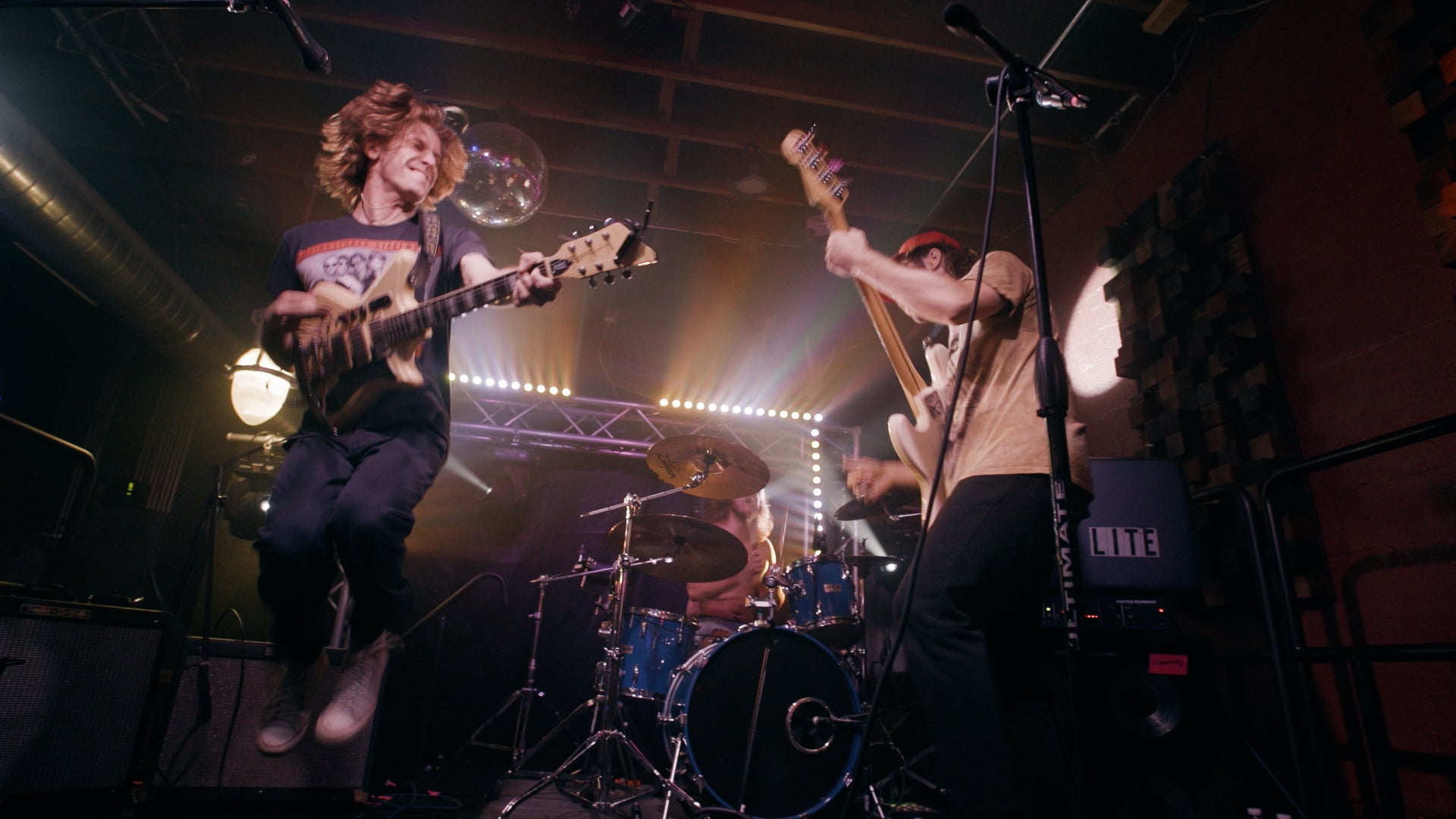
The following has been edited for brevity and clarity.
Rob Ferrett: You set out to make what you’re calling a “concert documentary,” not a documentary about concerts. What do you mean by that?
Colin Crowley: The term “documentary” can be loaded. These days, we’re used to seeing true crime documentaries and things that get very nitty gritty into an issue. We wanted to tell the story of the festival, but we thought it was best to tell the story by letting the music tell the story.
So what viewers are going to see is really a series of performances typical to what they would find if they attended Mile of Music with just enough context to let them know what they’re seeing.
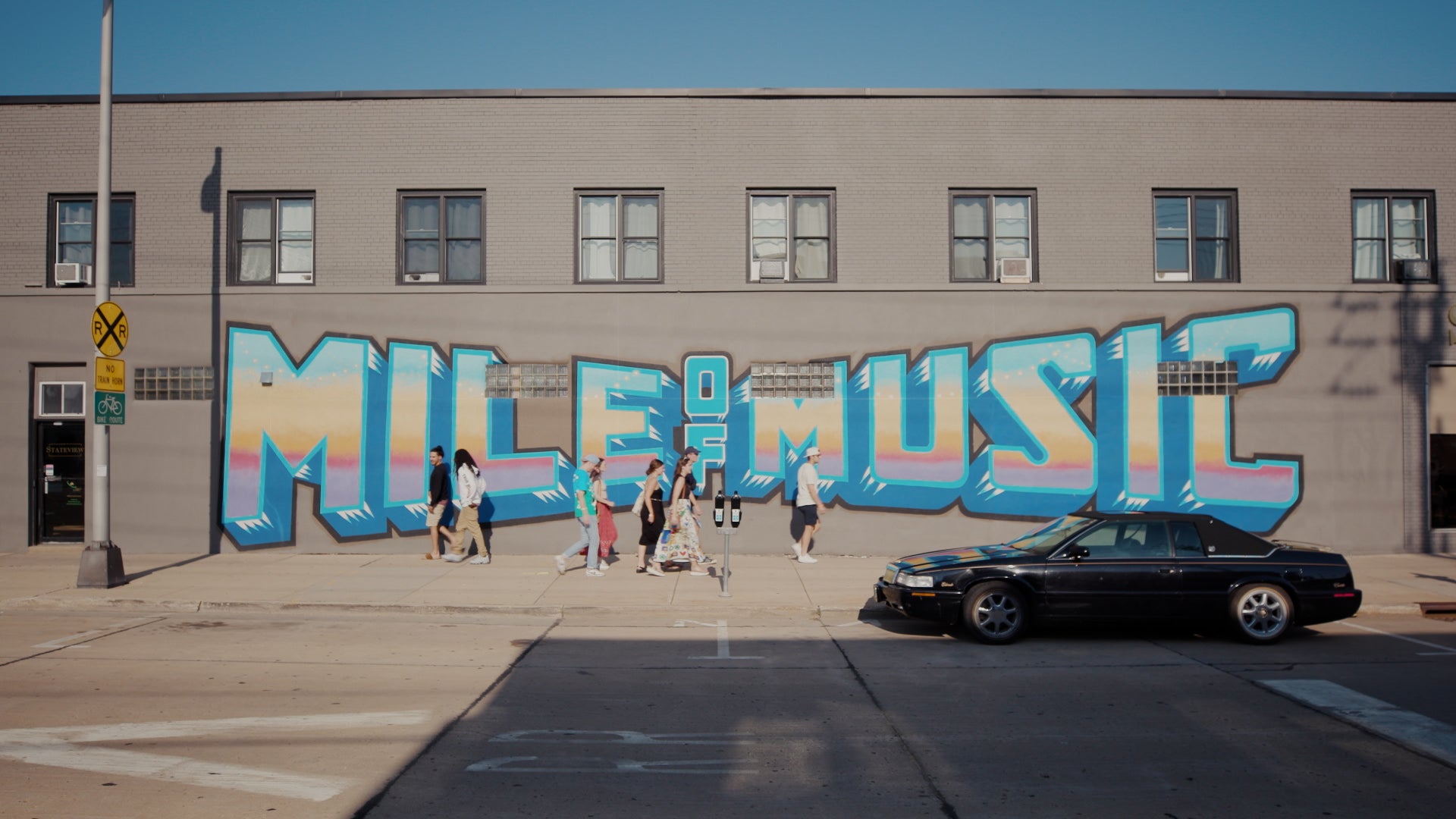
RF: Can you just set the stage for us? What is this festival like?
CC: It’s something you really have to be there to experience. Imagine College Avenue in downtown Appleton. It’s the main drag, and there are a lot of bars, restaurants, coffee shops and stores.
What the Mile Of Music festival does is different than other festivals where you’d maybe have one main stage out in a field. What they do is they turn the entire downtown and all of College Avenue into a series of over 35 venues. So you can show up in Appleton during the festival and simply walk up and down College Avenue. You can go into a coffee shop and see a performer. You can go across the street into a bar and see a loud rock band. You can go a little further down to Houdini Plaza and there’s a big stage, and there will be a crowd outside there. And it’s all happening simultaneously.
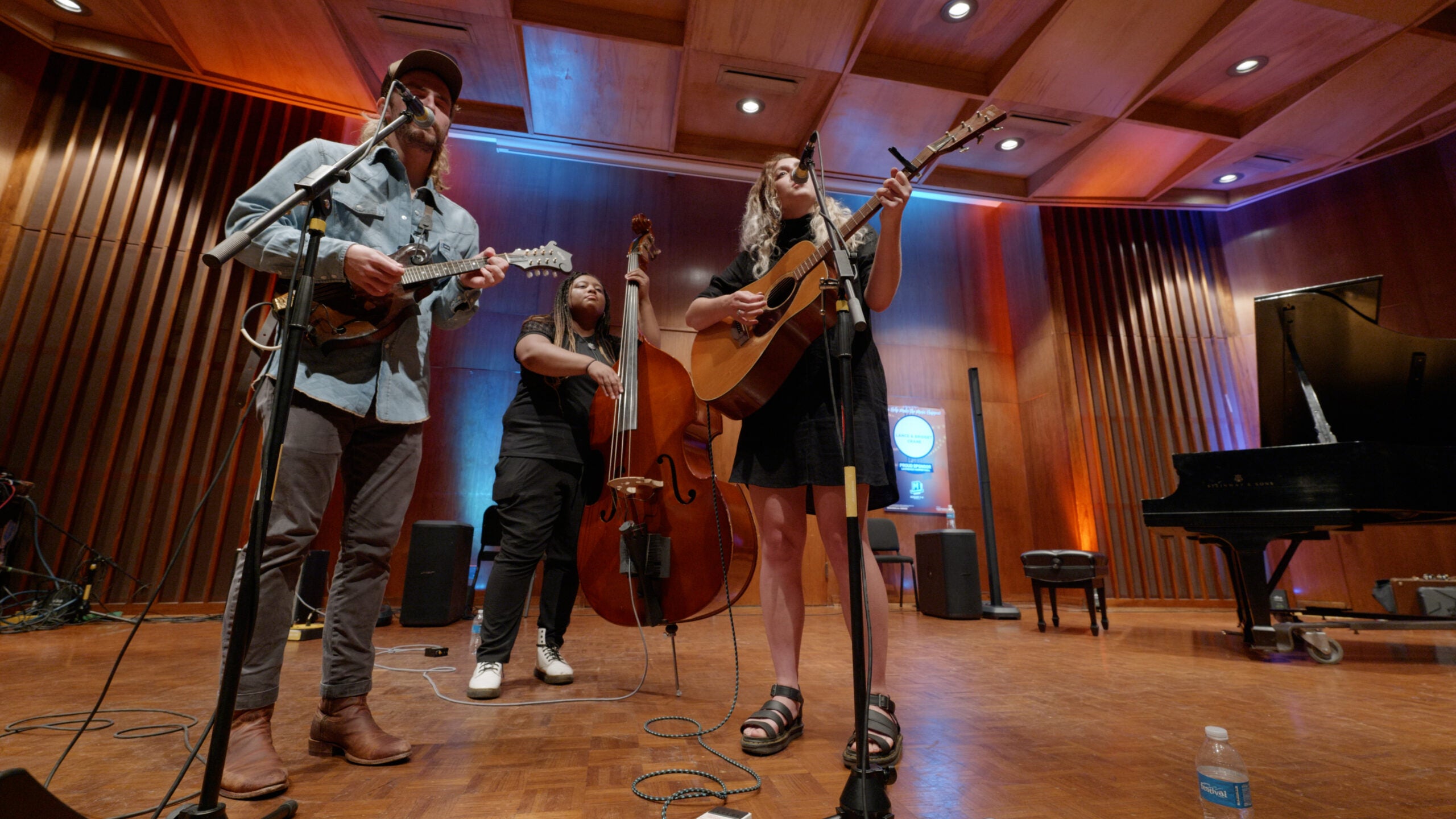
RF: Often in the film, you let a whole song go, which we don’t always get in a documentary.
CC: In the ‘90s, there were a lot of documentaries about ‘60s music and ‘70s music. They’d show Jimi Hendrix on stage for 20 seconds, and then he would cut to a talking head telling you why Jimi Hendrix is so important.
And my response as a fan and a viewer is always: I just want to see this guy play. Just let me hear the music. One of my pet peeves is documentaries about music that don’t let you listen to the music. So in this project, we really put the music front.
RF: The festival is trying to make it a happy place for musicians. What did you learn in that area?
CC: I learned the community of Appleton really comes together to put this concept of “Midwest nice” into action. They do that not only by being good, receptive audiences, but also there are local health care providers that do things like dental cleanings, dermatology, chiropractic massage therapy, haircuts, ear testing. They provide this all for free to these touring musicians. They [musicians] have nice hotel rooms. They get fed extremely well.
A lot of them probably don’t have the opportunity to have that kind of treatment because they’re on the road all the time. And a lot of them haven’t spent time in the Fox Valley of Wisconsin, and they come here and it’s not a place they would have imagined coming as touring musicians. Then they come here, and they’re treated like rock stars.
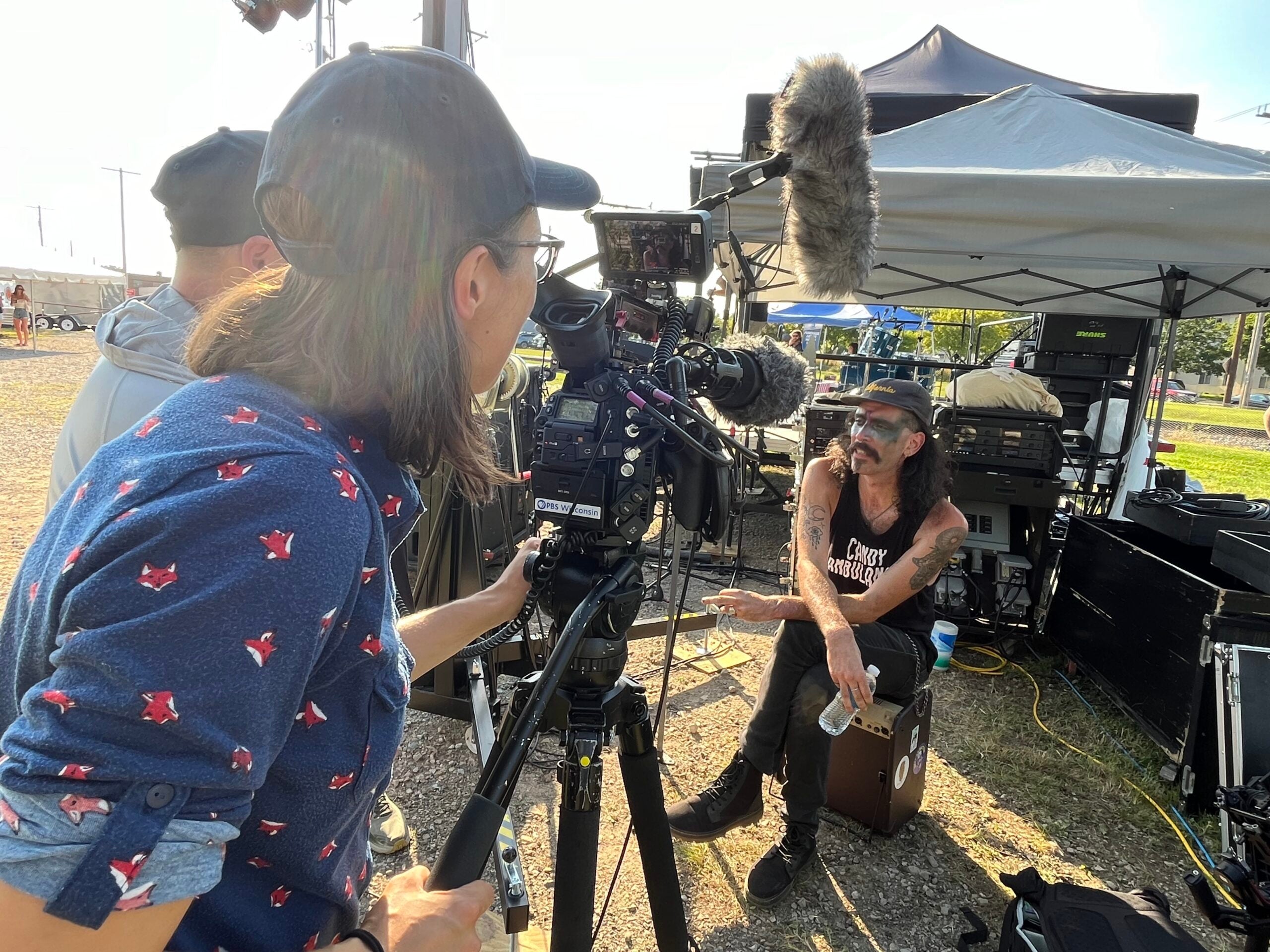
RF: You also zoom in on some of the volunteers and the services they’re providing. There’s some local education. What are some of the things that go beyond just those performances?
CC: There’s a whole series of music education workshops, and these are really great for children because you don’t think of bringing your kids to a music festival. But this makes that possible.
In partnership with Lawrence University and the music educators there and a whole community organization, they provide drumming workshops, Indonesian gamelan and [teach] how to play ukulele. So one of the shots you see in the show is about 50 people learning to play their first song on ukulele. Those are things that get the public involved and also give them a greater appreciation for what goes into making music.
Editor’s note: WPR and PBS Wisconsin make up Wisconsin Public Media.

